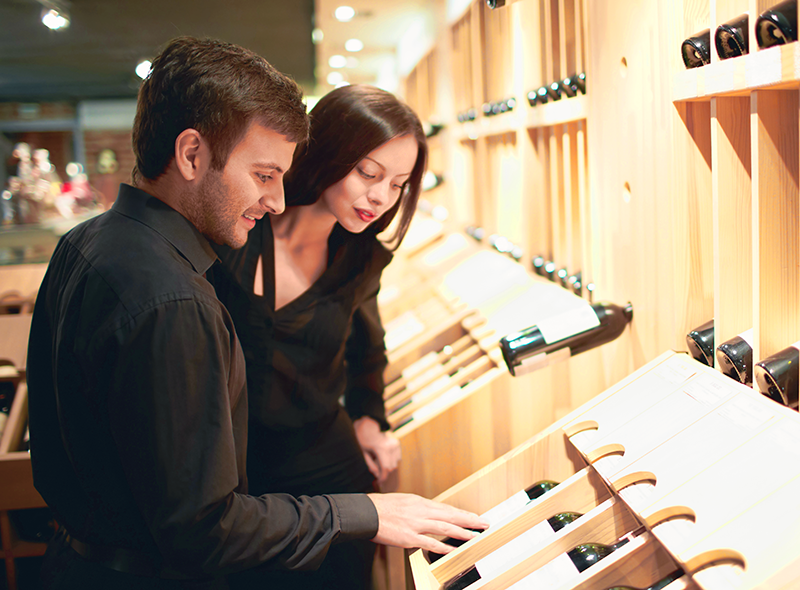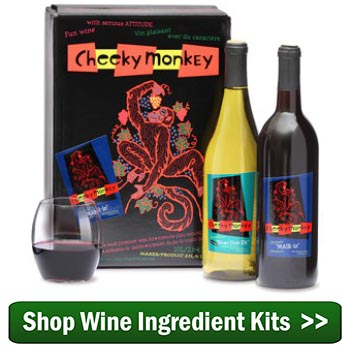 From the incredible prices being cried out at a Sotherby’s wine auction, to the fluffy articles that float around in today’s life-styles magazines, people are continuously being fed the notion that the older the wine is, the better it will be.
From the incredible prices being cried out at a Sotherby’s wine auction, to the fluffy articles that float around in today’s life-styles magazines, people are continuously being fed the notion that the older the wine is, the better it will be.
But is older wine better? Unfortunately, the answer is maybe – maybe not! The ol’ mantra: “the older the wine the better”, is just that – a mantra. It’s a generalization that is just as likely to be false as it is true. The reality with any wine is that there will always come a time when it would be best to drink up!
Wines don’t endlessly increase in quality like an investment fund or like a home increases in value. They have a life cycle, a beginning and an end, much like any living thing. At first, there is a steady rise in quality; then a flattening out, or plateauing; and eventually a long, slow decline.
The aging cycle of a today’s commercial wines are fairly well mapped and predictable. Some wines have very long life-cycles, involving many years, even decades. Then there’s other wines who’s aging potential is not so long. Based on the type of wine, how it was made, combined with an observation  of its character at bottling, a timeline can be laid out by the winery that shows the optimum time to drink that particular wine. Once this theoretical point is reached, any additional aging is futile. In fact, too much aging beyond that point will result in a very slow decrease of the wine’s quality.
of its character at bottling, a timeline can be laid out by the winery that shows the optimum time to drink that particular wine. Once this theoretical point is reached, any additional aging is futile. In fact, too much aging beyond that point will result in a very slow decrease of the wine’s quality.
The very same holds true for homemade wines. There will come a point in each wine’s life when more aging will not be a good thing. Holding on to it will only provide you with less and less quality as time goes on – a direct mocking of the phrase, “the older the wine the better”.
The whole point of bringing this to light is that some home winemakers get into the game of saving their wines instead of drinking them, putting bottles away like heirlooms, thinking they’re going to become more exceptional as time goes by, saving them for their granddaughter’s wedding and all, but in reality this is little more than a waste of good wine.
By all means let the wine age. It my take 3 months. It might take 3 years. Every so often pull a bottle out and see how it is doing. Is it becoming more mellow? Is it developing any complexities or layers of flavors? If yes, then great, let the wine age a little longer. But when no improvement can be detected between samplings, then simply put, it’s time to start drinking.
—–
Ed Kraus is a 3rd generation home brewer/winemaker and has been an owner of E. C. Kraus since 1999. He has been helping individuals make better wine and beer for over 25 years.

Well said. I find that most wines are best when consumed well before 10 years of aging (5-8 years for reds and less than 5 for whites).
After 10 years, especially if not stored properly (constant temperature AND humidity), most wines start to diminish in quality and get what is best described as a phenolic or chemical taste. Some get the chemical taste after only a few years.
This is not always true, so please don’t beat me up over this post.
Well said Ed! I’ve always been suspicious of long term aging. Reciently experienced that with my wife with a bottle of very good Chardonnay but it turned out not so good! We purchased about 6 bottles in Sonoma county from one of out favorite wineries in 2009 and it was the last bottle. The first 5 were superb but the last one had oxidized somewhat. So, you make a good point re: aging wine. Thanks for your story on this subject!
Drink it and make more!!!!!!!
I purchase ~3 boxes of wine thru E.C. Kraus each year; always a red wine blend. I buy the “higher priced” blends ($140 – $190 generally) as I find these to be more robust. As for the aging of my wines I can very comfortably say that mine do not (age). My initial start-up date to bottling takes ~4 months and I’ve had numerous comments from friends who simply LOVE my wines! Thanks E.C. Kraus!!!…:)
I’m using Suncal concentrate after I bottle what is the age lifespan on that wine in other words how long will it keep thanks
Jonathan, the lifespan of any homemade wine depends on how it was treated and bottled. That means if you treat the wine with sulfites at bottling. Also the type of closures you choose will determine how long the wine will keep. Below are a couple of articles that will discuss this further.
How Long Will My Homemade Wine Keep
http://www.eckraus.com/blog/shelf-life-of-homemade-wine
http://www.eckraus.com/blog/how-long-does-homemade-wine-last-keep
The ancient Greeks made wine long before the birth of Jesus Christ. They considered the optimal aging 1-5 years, after which the wine begins to deteriorate. Before chemists came up with sulfites, wines were stored for many years in dark cool places and slowly gain their tastes. Sulfites began to be added into wine in the 70s with one purpose – to stop the process of aging by killing the fruit into wine to prevent spoilage. Since then to age the wine in the hope of obtaining its unique taste qualities has lost all meaning. Wine with sulfites is dead wine. And the most optimal age of such wine is 1-2 years. This time is enough for all the proteins to settle in the wine to make it clear enough. If after 1 year your wine has acquired the perfect purity and look glossy, then it is time to open the bottle and enjoy its taste. This is my personal opinion in which I could be wrong. But in home making wine I prefer to follow ancient Greeks
Great to see this post as I do not like the sulfites. I now have a real reason not to add them to my wines. They aren’t around long enough to worry about it any way, but thought they were a necessary additive.